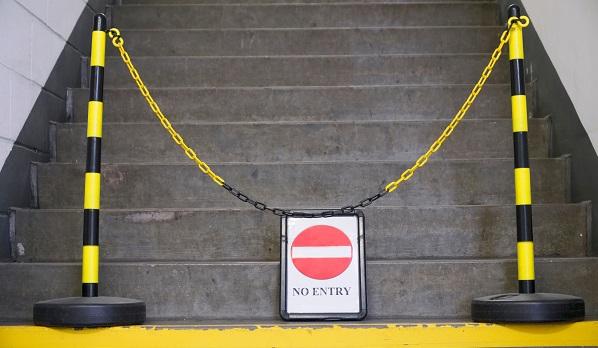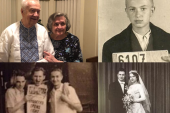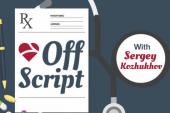ESC Bars Russian and Belarusian Cardiologists, Sparking Mixed Reactions
(UPDATED) Some say it’s necessary. Others say it unfairly isolates colleagues in no way involved with the conflict in Ukraine.

(UPDATED) In response to continuing invasion of Ukraine, the European Society of Cardiology (ESC) temporarily suspended the memberships of the cardiology societies of Russia and Belarus and excluded individuals based in those countries from participating in any ESC activities, setting off a debate within the cardiology community about how best to respond to the situation.
“The ESC very much regrets the effect this may have on individual Russian and Belarusian cardiologists and scientists, but the message to Russian and Belarusian leadership must be distinct and unequivocal,” according to a brief statement issued Friday.
On Tuesday, Stephan Achenbach, MD (University of Erlangen, Germany), president of the ESC, provided additional context around the decision in response to questions from TCTMD. “The ESC stands for peaceful international cooperation,” he said via email. “The ESC’s decision is not directed against cardiologists or scientists from Russia or Belarus. The ESC very much regrets the effect this decision may have on both. The ESC intention is to send a distinct message to the leadership of both countries. We see the temporary suspension as another signal, which, together with similar measures taken by numerous other institutions and organizations, may help put an end to the conflict as soon as possible.”
Putin doesn’t listen to his people (or care about them at all), so I just have trouble restricting healers from going to meetings to learn and exchange scientific thought.
— John P Erwin III MD FACC (@HeartOTXHeartMD) March 8, 2022
He added that “the ESC continues to hope for peaceful resolution of the conflict, whereupon there would be no need to sustain any measures. In addition, the ESC Board will closely monitor all developments.”
The action represents an escalation of what professional societies have done in response to the Russian invasion. The ESC released a statement of support for Ukraine early last week, followed by others, including the American College of Cardiology (ACC), the American Society of Echocardiography, and the European Atherosclerosis Society.
Reactions to the ESC’s latest announcement were mixed, with some supporting the decision and others taking a dimmer view. Some called it discriminatory, while others questioned why the ESC has not taken steps like this before in response to other conflicts around the world.
On Twitter, Aung Myat, MD (King’s College London, England), wrote: “Can’t have been an easy decision by the Executive but probably the right one. ‘Twas ever the case that those who suffer the most are the civilian bystanders on both sides of the front line. My literal heart goes out to all those suffering at the hands of this imperialist lunatic.”
But there were many on the other side, arguing that the ESC went too far. One ongoing Twitter poll has about 60% of respondents expressing disagreement with the decision.
While I agree with your sentiment, people in #Ukraine are being slaughtered. The best way of stopping #Putin is the discontent of the Russian people against the war. Making Russia a pariah in international events is one way to accelerate this and counters Kremlin’s propaganda.🇺🇦
— Michael Savage (@DocSavageTJU) March 8, 2022
“Not only [is this] absurd, but it will also have zero effect on this crisis,” tweeted one cardiologist, with another stating, “I can’t believe a scientific society is limiting participation of single individuals only based on their nationality. This is discrimination! This is wrong!”
And Mamas Mamas, BMBCh, DPhil (Keele University/Royal Stoke University Hospital, Stoke-on-Trent, England), senior clinical editor at TCTMD, tweeted: “I agree with suspending societies but not individuals. Some of our Russian colleagues don't agree with the war in Ukraine.”
Giuseppe Biondi-Zoccai, MD (Sapienza University of Rome, Italy), also indicated that the ESC was too broad in its response, failing to individualize its judgment of physicians and societies within Russia. “I think it is too universally detrimental to them,” he said.
Still, he told TCTMD that the move is largely symbolic and that he believes it’s meant to spur cardiologists and other physicians to take a position, as well as to show that Europeans are united against the aggression of Russia. “Also, in a way, it’s a message that the European Society of Cardiology will not tolerate any kind of approach or attempt to hijack the governing bodies and the decision-making process,” Biondi-Zoccai added.
Blame Russia, Not Russian Scientists
The sentiment that many Russian cardiologists are at odds with their country’s leadership was echoed by others as well.
Science is what brings different people together and generally makes people human. There are other venues for discussion. The task of medical science is to help people, not to divide them
— Stanislav Kotlyarov (@DrKotlyarov) March 6, 2022
Speaking with TCTMD, Vipin Zamvar, MD (Royal Infirmary of Edinburgh, Scotland), who called the ESC’s move a “completely wrong decision,” said people in Russia are not as free as those in places like the United States, the United Kingdom, and Western Europe to express their opinions in social media posts or editorials. “But I know personally they are anguished with this, and they are horrified, but they can’t do anything,” Zamvar said of his Russian colleagues. “And for us to exclude them, to excommunicate them from our academic societies, is actually punishing them.”
The ESC’s decision to temporarily bar Russian and Belarusian cardiologists from participating in ESC activities is part of a larger discussion around what professional societies can or should be doing in response to the invasion of Ukraine, one that also includes talk of whether journals should continue accepting submissions from the countries waging war.
Over the weekend, Biondi-Zoccai polled his Twitter followers on whether scientific journal editors should “reject all scholarly manuscripts from Russian colleagues to motivate them to counter more proactively the Russian invasion of Ukraine.” Of 417 respondents, most (69.1%) rejected that idea, with only 19.7% agreeing with such a prohibition (another 4.3% said “it depends” and 7% said they didn’t know).
As scientific journal editors, should we a priory reject all scholarly manuscripts from Russian colleagues to motivate them to counter more proactively the Russian invasion of Ukraine?@NEJM @thelancet @JACCJournals @CircAHA @ehj_ed @EHJACVCEiC @BruiningNico @ehjopen @DFCapodanno
— Giuseppe Biondi-Zoccai (@gbiondizoccai) March 6, 2022
“It is very sad that such questions arise at all. Science and discrimination on the basis of nationality are not compatible,” one Russian scientist said in response to the poll. “Science is what brings different people together and generally makes people human. There are other venues for discussion. The task of medical science is to help people, not to divide them.”
Biondi-Zoccai is with the majority who are against shutting out Russian and Belarusian scientists from scientific publications, and he said he recently decided to accept a manuscript with a Russian author in his role as editor-in-chief of Minerva Cardiology and Angiology. He said, however, that the “bar is now higher” for authors from these countries because of the loss of credibility stemming from their governments’ actions.
Zamvar is editor-in-chief of the Journal of Cardiothoracic Surgery, and he said the editors there decided not to block submissions from Russia or anywhere else. He touted continued dialog as the way forward for professional societies and journals.
“We should be bold enough to put our opinions out there in editorials and exercise our free speech over social media,” he said. In addition, Zamvar said, the medical community should “keep on communicating with the elite, with the intelligentsia, of Russia. Keep the communication channels open with them. That is the best way forward.”
The way the academic societies are responding is not the way forward. Vipin Zamvar
Zamvar stressed, “I am appalled by the current events in Ukraine, and what I see on my TV screen. But the way the academic societies are responding is not the way forward.”
Zamvar is the secretary-general of the World Society of Cardiovascular & Thoracic Surgeons (WSCTS), and the leadership there have a tough decision ahead of them, as their annual meeting is scheduled to be held in St. Petersburg, Russia, in September. Zamvar said they have not yet decided on what to do, but that if the meeting is canceled, it will only punish the physicians who have organized it. “It doesn’t make any difference to the politicians,” he said.
Other societies have weighed in on this issue as well, and the ACC, for one, will not be taking the ESC’s approach.
“The American College of Cardiology believes that patients come first, and now, more than ever, there is a need to rally around our members across the globe to ensure that they have the support and resources they need to care for their patients,” said ACC President Dipti Itchhaporia, MD (Hoag Memorial Hospital Presbyterian, Newport Beach, CA), in a statement sent to TCTMD. “Medicine is above politics and ACC will not exclude any of our colleagues who are working toward a shared mission of improving heart health. The College has a long history of working across borders to improve heart health and remains committed to that now and in the future. The ACC continues to express its support and concern for our members in the Ukraine and the patients they are working to treat on the frontlines.”
Likewise, the cardiology work group of the International Society for Telemedicine & eHealth said Monday that it “will not restrict access to its events to cardiologists with regards to their nationality, religious beliefs, or other characteristics that may seem discriminatory,” and advised other societies to follow its lead.
And the American Heart Association does not currently have plans to follow the ESC’s precedent, with a spokesperson saying Tuesday that the AHA “is closely monitoring the rapidly changing situation in the Ukraine and the response from the medical community and other societies. At this time, the Association will continue to help curate the global scientific dialogue without any change to our standard practices.”
That statement applies, she added, “to both our meetings and membership events, as well as our editorially independent journals.”
Todd Neale is the Associate News Editor for TCTMD and a Senior Medical Journalist. He got his start in journalism at …
Read Full BioSources
European Society of Cardiology. ESC statement on the war in Ukraine. Published on: March 4, 2022. Accessed on: March 7, 2022.




Comments